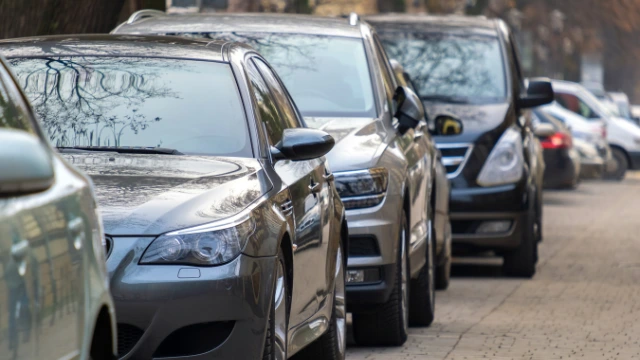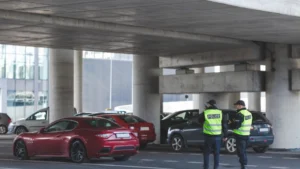

When a Traffic Violation Becomes a Crime
Picture this: You’re running late for work, so you speed through a red light. Unfortunately, an officer sees you and pulls you over. You assume you’ll get a standard ticket, but instead, the officer informs you that your reckless behavior is considered a criminal traffic violation. Now, instead of just paying a fine, you’re facing potential court dates, license suspension, and even jail time.
Many people don’t realize that not all traffic offenses are minor infractions. Some violations are classified as misdemeanor traffic crimes or even felony traffic crimes, carrying serious legal consequences. Understanding the differences between these charges and knowing your legal options can help you navigate the system and protect your rights.
Misdemeanor Traffic Crimes: More Than Just a Ticket
Most traffic violations, like speeding or running a stop sign, are considered infractions—they result in fines but do not carry criminal penalties. However, when a violation involves reckless behavior, property damage, or endangerment, it may be classified as a misdemeanor traffic crime.
Common Misdemeanor Traffic Crimes
- Reckless Driving: Operating a vehicle with blatant disregard for safety, such as excessive speeding or weaving through traffic.
- Driving Without a Valid License: This includes driving with a suspended, revoked, or expired license.
- Hit-and-Run (Property Damage): Leaving the scene of an accident without providing contact information or insurance details.
- DUI (First Offense): In many states, a first-time driving under the influence (DUI) offense is classified as a misdemeanor.
- Racing on Public Roads: Engaging in street racing, even without causing harm, can lead to criminal charges.
Legal Consequences of Misdemeanor Traffic Crimes
Unlike simple infractions, misdemeanor traffic offenses come with heavier penalties, including:
- Fines: Often ranging from $500 to $5,000, depending on the offense.
- Jail Time: Some misdemeanor traffic violations can result in up to one year in county jail.
- License Suspension: The court may suspend your driving privileges for months or even years.
- Probation: Instead of jail time, some offenders are placed on supervised probation, requiring them to attend traffic school or complete community service.
While a misdemeanor is less severe than a felony, it still results in a criminal record, which can affect employment, insurance rates, and background checks.
Felony Traffic Crimes: When Driving Offenses Become Serious
A felony traffic crime involves more than just careless driving—it includes acts that result in serious injury, death, or repeat violations of the law. Felony charges carry harsh penalties, including long-term imprisonment and permanent license revocation.
Examples of Felony Traffic Crimes
- DUI with Injury or Multiple Offenses: A DUI becomes a felony when it results in serious injury or if the driver has multiple prior convictions.
- Vehicular Manslaughter: If a driver’s negligence causes a fatal accident, they may be charged with vehicular manslaughter or vehicular homicide.
- Hit-and-Run (Injury or Death): Leaving the scene of an accident that resulted in injury or death can lead to felony charges.
- Fleeing from Law Enforcement: Attempting to evade police, especially in a high-speed chase, is often considered a felony.
- Habitual Traffic Offender: If a driver accumulates multiple serious traffic violations within a certain period, they may face felony charges.
Legal Consequences of Felony Traffic Crimes
Felony traffic crimes come with severe penalties, including:
- Prison Time: Felony traffic convictions can result in multiple years in state prison, especially if the crime involved injuries or fatalities.
- Permanent License Revocation: Some states permanently revoke a driver’s license after felony convictions.
- High Fines: Felony traffic offenses carry fines ranging from $5,000 to $50,000.
- Civil Lawsuits: Victims of felony traffic offenses may file lawsuits for damages, medical expenses, and wrongful death claims.
A felony conviction can have lifelong consequences, including difficulty finding employment, obtaining loans, and traveling internationally.
Sentencing Factors in Criminal Traffic Cases
Not all criminal traffic cases result in the maximum penalty. Judges consider several factors when determining sentencing, including:
- The severity of the Offense: The more dangerous the behavior, the harsher the penalty.
- Prior Convictions: Repeat offenders face stricter sentencing.
- Injury or Fatality: Cases involving injury or death often result in enhanced sentencing.
- Intent and Recklessness: Deliberate acts, such as fleeing from police, lead to harsher consequences.
- Mitigating Circumstances: If the driver can demonstrate remorse, lack of intent, or cooperation, sentencing may be reduced.
Some courts allow plea bargains, where a defendant pleads guilty to a lesser charge in exchange for a reduced sentence.
Case Study: How One Driver Avoided a Felony Conviction
Background
Mark, a 30-year-old delivery driver, was charged with felony DUI with injury after running a red light and crashing into another vehicle. The other driver sustained a broken arm. Mark had a prior DUI conviction, making this a second offense.
Defense Strategy
Mark’s lawyer built a defense by:
- Challenging the Breathalyzer Results: The defense argued that the breathalyzer may not have been properly calibrated.
- Proving Lack of Intent: Mark had no history of reckless behavior beyond his prior DUI, suggesting this was not habitual.
- Negotiating a Plea Deal: Instead of a felony, the lawyer arranged a plea bargain to reduce the charge to a misdemeanor DUI with probation and alcohol treatment.
Outcome
Mark avoided a felony conviction and prison time by agreeing to probation, alcohol treatment, and community service. His driver’s license was suspended for one year instead of permanently revoked.
Conclusion
Criminal traffic violations carry serious legal consequences, but defense strategies exist. If you or someone you know is facing a misdemeanor or felony traffic charge, consulting an experienced criminal defense attorney is the best way to protect your rights.
Frequently Asked Questions (FAQs)
- Can a misdemeanor traffic crime be upgraded to a felony? Yes. If a misdemeanor traffic violation results in serious injury, death, or multiple offenses, it may be upgraded to a felony.
- Will a criminal traffic violation stay on my record permanently? Misdemeanor and felony traffic convictions remain on your criminal record. Some may be eligible for expungement after a certain period.
- Can I go to jail for reckless driving? Yes. Reckless driving is often a misdemeanor but can lead to jail time, especially for repeat offenses or if it causes harm.
- Do I need a lawyer for a criminal traffic charge? Yes. A criminal defense attorney can help reduce charges, negotiate plea deals, or get charges dismissed.
- What should I do if I’m charged with a felony traffic crime? Seek legal representation immediately. A felony conviction can lead to prison time, high fines, and permanent consequences.



